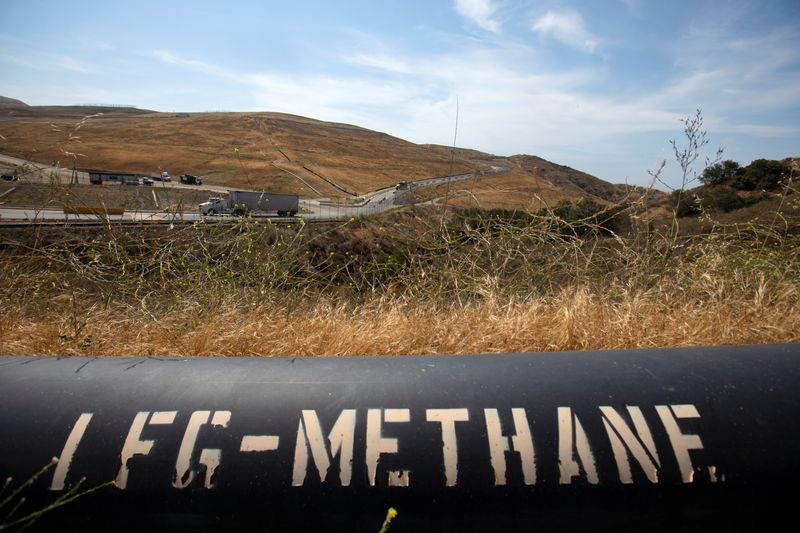(Reuters) - Methane emissions at nearly two dozen U.S. landfills regularly exceeded federal limits and in some cases were higher than facility owners reported to the government, according to an analysis of inspection reports published on Thursday.
The study by environmental nonprofit Industrious Labs concluded that U.S. Environmental Protection Agency (EPA) regulations are insufficient to prevent landfills, or garbage dumps, from emitting large amounts of the climate-warming gas methane.
The group urged EPA to require monitoring with more advanced technologies, extend regulation to smaller landfills and mandate speedier installation of gas-capturing systems as landfills expand, among other recommendations.
WHY IT'S IMPORTANT
Methane is more potent than carbon dioxide as a greenhouse gas in the short term, and scientists and policymakers have called for aggressive action to rein in those emissions to fight climate change. Landfills accounted for more than 14% of U.S. methane emissions in 2022, the third-biggest source behind the oil and gas and livestock sectors.
KEY QUOTE
"More and more evidence is piling up that it's time for the EPA to act and begin that process of updating the rule," Katherine Blauvelt, circular economy director at Industrious Labs, said in an interview.
EPA has said that methane emissions represent a lost opportunity to capture and use an energy resource. The agency last year said food waste was responsible for about 58% of fugitive methane emissions from landfills and recommended diverting food waste from landfills to slash methane emissions in the sector

CONTEXT
EPA is required to begin a process to reassess its landfill regulations by August this year. U.S. President Joe Biden's administration has cracked down on methane emissions in the oil and gas industry with a range of policies and in 2021 spearheaded a global effort to slash methane emissions.